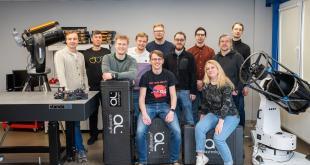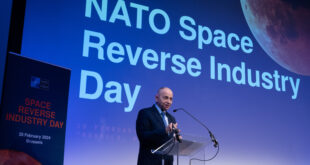
The Russian state space corporation, Roscosmos, and the Turkish Space Agency are reported to be in advanced discussions over a formal bilateral space cooperation agreement, according to the Russian news agency TASS.
The talks include the terms and conditions for Turkish astronauts to be trained by Russian experts, and then launched to the International Space Station (ISS) in the 2021 to 2023 period.
At present the discussions are being led by Dmitry Rogozin, head of Roscosmos, for Russia and the Turkish ambassador to Moscow, Mehmet Samsar, for Turkey.
“The Turkish side confirmed its original plans for having its astronauts trained in the Star City. In the conversation topical issues concerning mutually beneficial cooperation in space were discussed. The two sides noted the great potential and importance of this theme in relations between the two countries,” a Roscosmos news release said.
The initial Russian offer to send Turkish astronauts to the ISS was initially made by Dmitry Rogozin to Turkish President Recep Tayyip Erdogan during the latter’s attendance at the MAKS-2019 international aerospace show held outside of Moscow in August 2019. President Erdogan was said to have reacted positively to Rogozin’s invitation, saying that it was “very interesting and a great honour.”
Rogozin told TASS that he assumes that Turkey would likely want to send its first astronaut to the ISS with Russian assistance in 2023 in order to mark the 100 year centenary of the founding of the Turkish Republic by Kemal Ataturk in 1923.
According to a Roscosmos statement, Russia and Turkey have already agreed to draft a framework space cooperation agreement.
“It was agreed to start work on drafting a framework inter-governmental agreement on space cooperation between the two countries,” the Roscosmos statement said.
News of these advanced space cooperation discussions comes as Turkey undertakes one of its biggest geopolitical transitions since the First World War. Turkey, a NATO member state, is becoming increasingly estranged from its Western allies over the civil war in Syria and its thwarted attempt to become a member of the European Union (EU). In light of this, Ankara has increasingly found itself siding with Russia on a number of geopolitical issues.
 SpaceWatch.Global An independent perspective on space
SpaceWatch.Global An independent perspective on space




